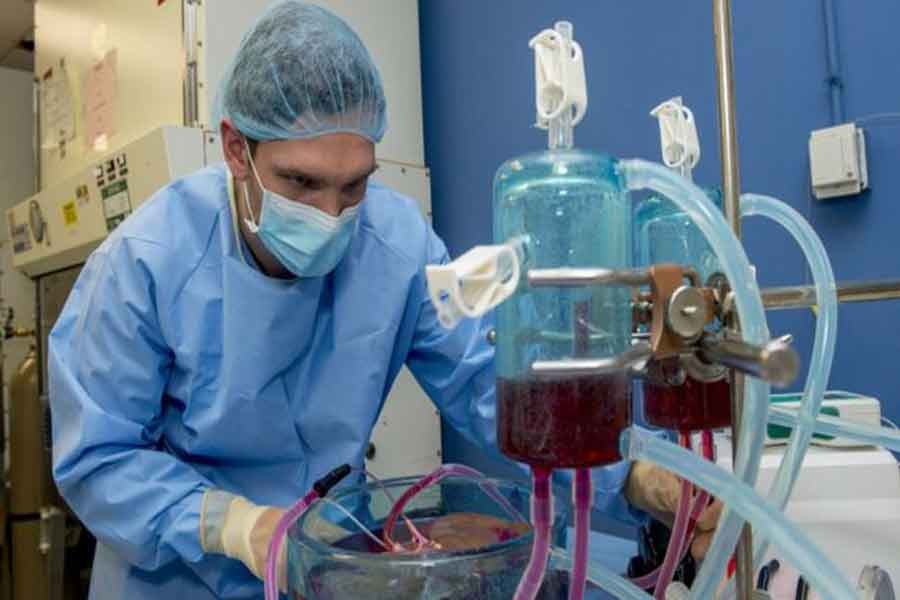Supercooling human livers to -4C triples the time they can be kept before transplant compared with putting them on ice, US researchers say.
It slows the metabolic rate to prevent damage, Nature Biotechnology reports.
It means organs can be kept viable for more than a day, which researchers say could revolutionise organ transplants, reports BBC.
The next step will be assessing how long supercooled organs function in large animals such as pigs, before moving to human clinical trials.
The team at Massachusetts General Hospital and Harvard Medical School pioneered the technology in rats five years ago.
The animal’s tiny livers were chilled while nutrients and oxygen were pumped through the organ’s blood vessels.
However, there were challenges going from a 10g (0.35oz) rat liver to a 1.5kg (3lb 5oz) human liver.
As organs get bigger there is a greater danger of ice crystals forming, which can rupture cells and kill tissue.
The solution was to prepare the liver for supercooling by using protective agents that prevented freezing.
Experiments on discarded human livers showed they could be kept for 27 hours, rather than the typical nine hours when the organs are stored on ice.
One of the researchers, Dr Reinier de Vries, said: “This is a big breakthrough in organ preservation.
“This is the first time that we actually show that it is feasible to preserve human organs at sub-zero temperatures.”


